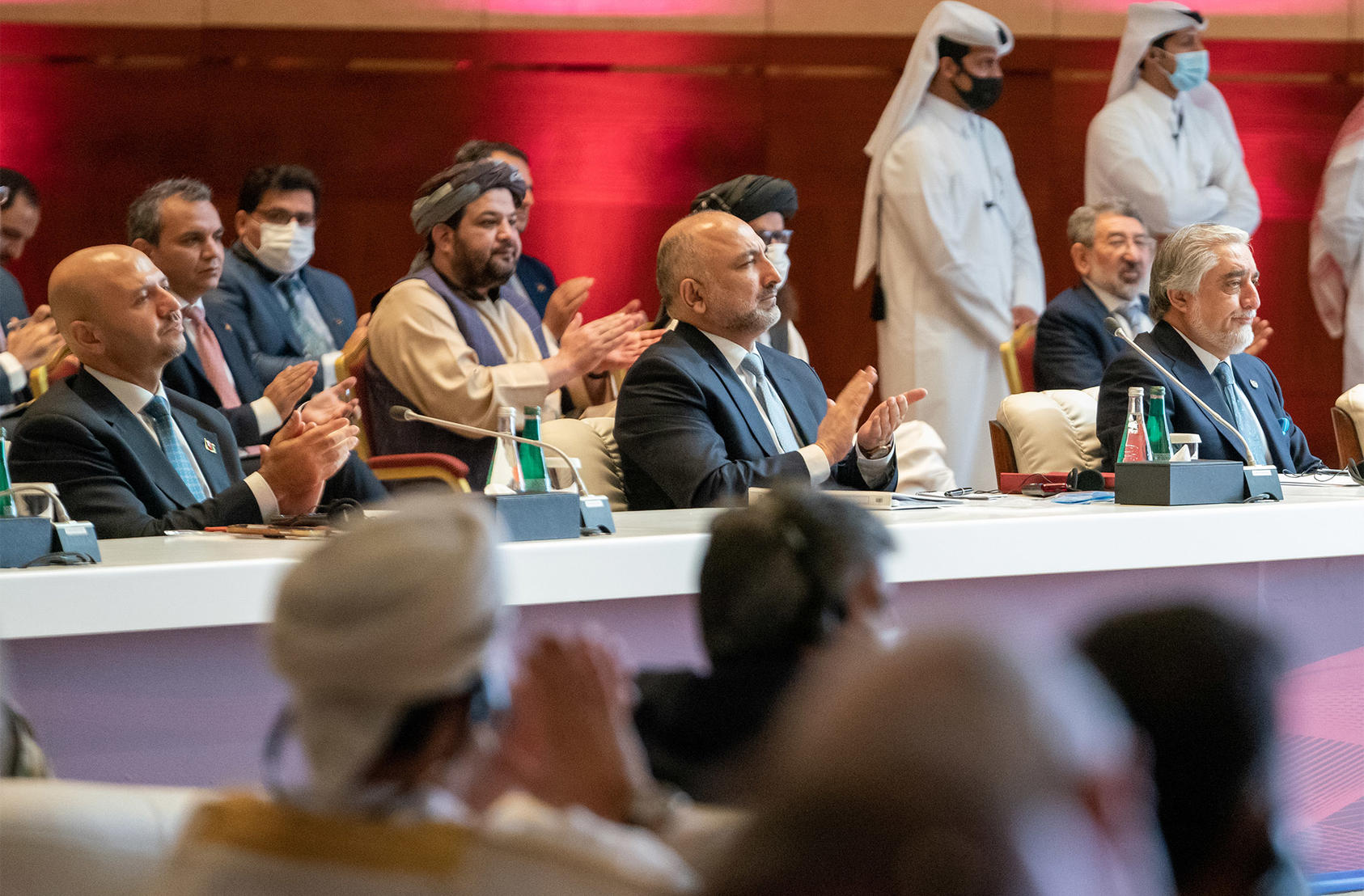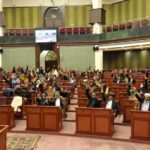The recent diplomatic exchanges between Pakistan, Taliban and the Afghan government have marked a savoury start right from Abdullah Abdullah’s visit to Pakistan this year that was followed by Prime Minister Imran Khan’s visit to Afghanistan. The United States on the other hand is in a haste to put a lid on the simmering squabble they have connived to create. Until now, America has bypassed the Afghan government in the brokering of a peace agreement by unilaterally initiating negotiations with the Taliban. America’s handling of the negotiations serves to exude a strong sense of dominance that the Taliban have at the negotiating table, due to their unmatched appetite for violence.
The inevitable scenario would be a constitutional arrangement where the Taliban’s idea of an ultra-conservative national identity is likely to be imposed on all Afghan stakeholders. In such a constitutional set-up, the rights of the minorities to freely profess their faith as well as women to have the basic right to education or, at the least, the freedom to move without being accompanied by a male family member, may not be embraced by the Taliban.
In the Afghan context, constitution-making will be a particularly sensitive issue as debates and negotiations will be heavily polarised and torn between ideological lines. No constitution is a self-executory instrument and it depends on the people for its enforcement. Therefore, the development of consensus is a pre-requisite of constitution-making, as it represents being legitimated by the people. With a lack of shared values that would naturally play a cohesive role in the constitutional dialogue in Afghanistan, the initiation of any intra-peace dialogue can potentially conflagrate the differences that would risk turning constitutional debates into battle zones. Then, instead of fostering compromise between the government and the Taliban, the constitution-making will become a source of exacerbating tensions which, in Afghanistan’s scenario, would skid the state back into violence.
To avoid the Talibanisation of the negotiation process, Afghan constitution makers should avoid making decisions about certain fundamental rights and values at this critical juncture. Deliberate omission and avoiding reaching a conclusive judgment regarding contentious issues will avoid the possibility of an overt conflict. Postponing controversial decisions in Afghanistan’s context, such as determining the rights of minorities and women at the start of the constitution-making process, would create an environment for continuous political interactions between the Taliban and the government that may eventually mature into the dispensation of these rights.
Proponents of the neo-liberal idea would certainly be exasperated by this incremental process for tightening the noose around fundamental rights that have become the hallmark of progressiveness. On the contrary, incremental constitutional development rests on the evolution of societal norms and values that will eventually force political actors to recognise these rights through the political process. Thus, it paves a smooth way for state institutions to operate without having to destroy the entire edifice on which the system of peace and cooperation is built.
The American experience is a testament to the success of incremental development of rights and values. During the American constitution-making phase, there was an intense debate over the rights of the American citizens to legally own and trade slaves. The significance of this issue was such that, had the framers abolished slave trade during the negotiation process, they would have failed to negotiate the US Constitution as it stands now. Instead, the framers agreed to defer the question of slave trade till the year 1808 so the people of that era would deliberate on the provision of slave trade. Coming to the present, not only does the American Constitution not bear the scars of its illiberal past. By contrast, it has taken over the role as the flag bearer of freedom and equality throughout the world.
Decades of turmoil that have wreaked havoc on the people of Afghanistan have also engulfed the entire region into conflict. For an enduring Afghan peace settlement, it is imperative to maximise on the commonalities instead of conflagrating the issues that may potentially rupture the peace process. As Americans withdraw and the Taliban gain an edge in the negotiations, the Afghan government must adhere to the process of incremental development instead of ramming the Taliban with recognising liberal and progressive rights. It is a unique irony that the use of the proverbial haste makes waste candidly applies to the Afghan intra-peace dialogue. Though the diplomatic prelude between Pakistan, Taliban and the Afghan government sounds like an optimistic chapter yet, exorbitant compromises will have to be made for any party to go home victorious.













